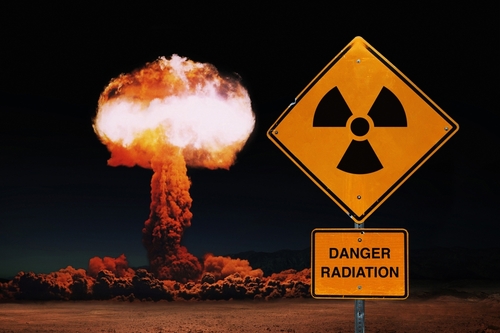
In a stark warning that has resonated with many concerned Americans, former President Donald Trump has cautioned that the United States stands “on the brink of World War Three.” This alarming statement comes in the wake of a devastating suicide drone strike in Jordan, which resulted in the tragic loss of three U.S. service members. The attack, which also left eight critically injured and another 34 treated for injuries, has been attributed to Iran-backed terrorists, highlighting the escalating tensions in the Middle East.
Trump’s criticism of President Joe Biden’s handling of foreign policy is both severe and direct. He attributes this latest act of aggression to what he describes as Biden’s “weakness and surrender,” suggesting that such an approach has emboldened America’s adversaries. The former president’s comments reflect a growing concern among conservatives that the current administration’s strategies are failing to deter hostile actions against U.S. interests abroad.
You will not survive WW3, Robots now hunt humans… pic.twitter.com/PY73QdzFxg
— Unfiltered Central 🔞 (@UnfilteredCen) January 21, 2024
The Pentagon’s confirmation of the casualties has only intensified calls for a strong response. Senator Lindsey Graham (R-S.C.) has been vocal in urging the Biden Administration to take decisive action against Iran. He advocates for striking significant targets within Iran, not merely as retribution but as a necessary measure to prevent further aggression. Graham’s stance is clear: force is the only language that the Iranian regime understands, and without a tangible cost to their infrastructure and personnel, attacks on U.S. troops will persist.
The situation in the Middle East continues to deteriorate, with ongoing conflict between Israel and Hamas terrorists in Gaza, and Iran engaging in an exchange of airstrikes with Pakistan, a key U.S. ally. House Foreign Affairs Chairman Michael McCaul has also criticized the Biden administration for a perceived weakness that has eroded U.S. deterrence in the region. He calls for a major reset of Middle East policy to safeguard national security interests and restore the deterrence that has been lost.
It's almost as if there's a pre-planned and centrally co-ordinated globalist agenda to have an "all-out war" with Russia (aka WW3). 🙄
Just like with "Covid", it's not a coincidence that the exact same narrative, buzzwords and talking points are suddenly being pushed in country… pic.twitter.com/y9Erg8445O
— Wide Awake Media (@wideawake_media) January 29, 2024
President Biden, speaking at a church in Columbia, South Carolina, acknowledged the gravity of the situation, stating that the U.S. “shall respond” to the Iranian drone strike. However, his administration’s approach thus far has been met with skepticism by those who believe a more robust stance is required to confront the challenges posed by Iran and its proxies.
Iran’s involvement in regional conflicts is well-documented, with its Islamic Revolutionary Guard Corps-Qods Force (IRGC-QF) openly supporting various terrorist organizations across the Middle East. The use of proxy groups allows Iran to maintain deniability and shield itself from accountability for its destabilizing activities. This tactic has only added to the complexity of addressing the threats emanating from Tehran.
In his statement, Trump expressed his deepest sympathies to the families of the brave service members who were killed. He reiterated the need for a return to a policy of “peace through strength,” arguing that chaos, destruction, and the loss of American lives will continue without a change in leadership. Trump’s message is clear: the country cannot endure with the current foreign policy direction.
As the world watches with bated breath, the question remains whether the Biden administration will heed the warnings and adjust its strategy to effectively counter the threats facing the United States and its allies. With the specter of a global conflict looming, the decisions made in the coming days could have profound implications for international peace and security.










